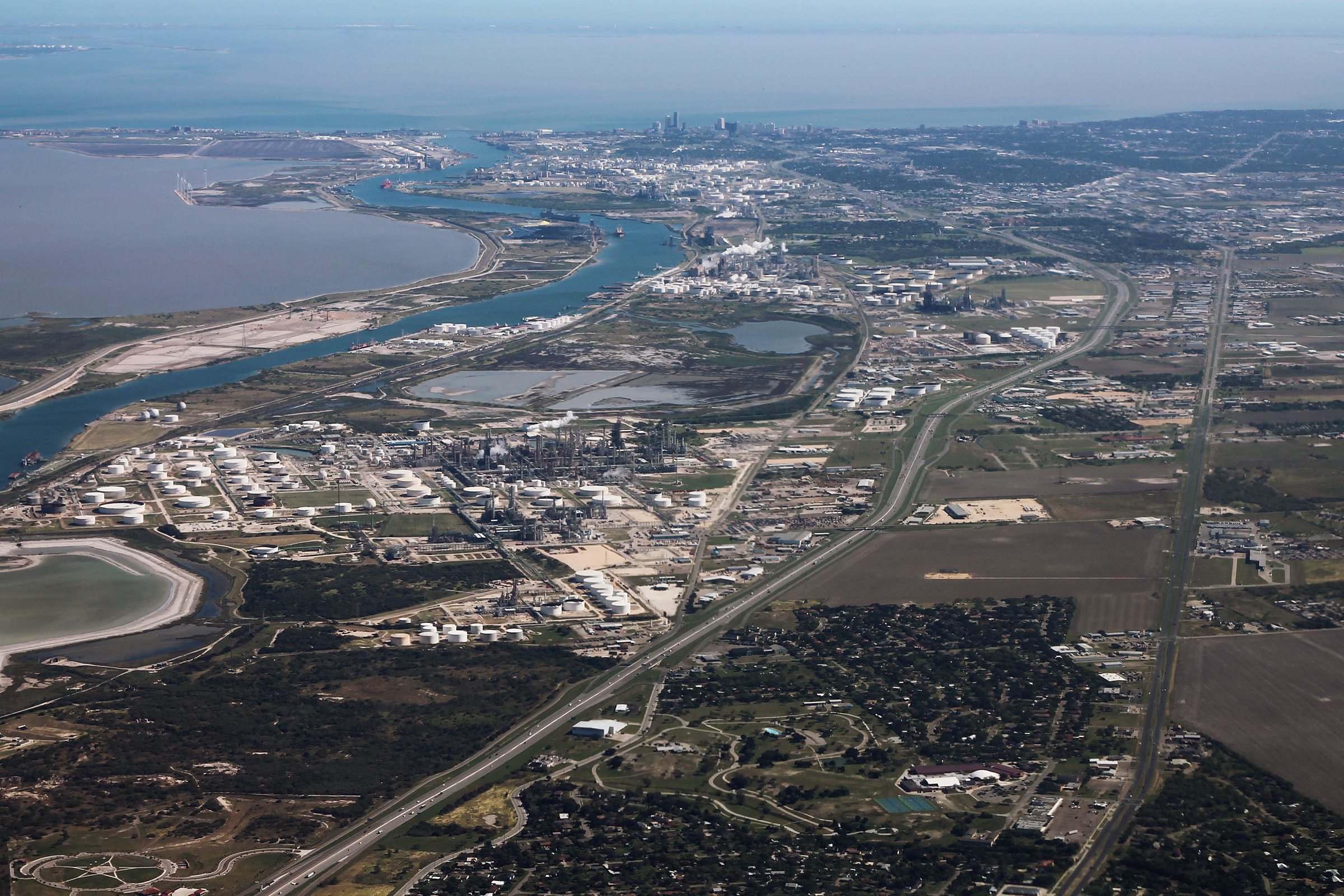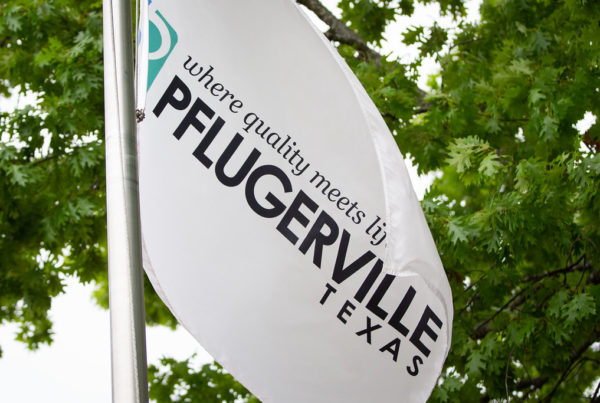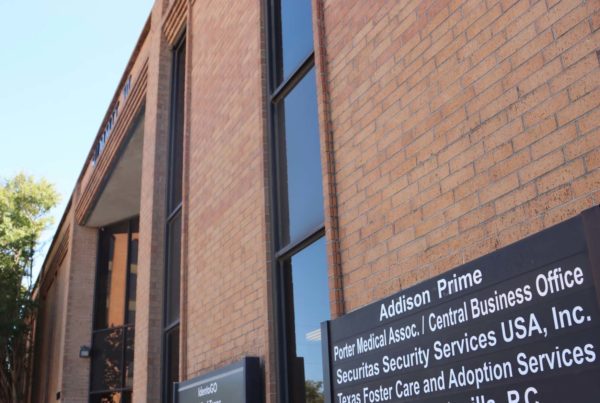Boxed in by refineries, a ship channel, an interstate highway and construction from the new Harbor Bridge, residents of the Hillcrest neighborhood on Corpus Christi’s northside have long endured some of the impacts of the city’s industrialization.
But despite their isolation, residents haven’t endured quietly. In fact, the neighborhood has taken the city to court on civil rights charges on three occasions over growing industrialization in Hillcrest.
Now, residents of Hillcrest have filed a new Title VI civil rights complaint against the city – this time to stop the proposed construction of a desalination plant near the neighborhood, close to a “buffer zone” meant to protect residents from ill effects stemming from nearby refineries.
Dylan Baddour, who has been following the story for Inside Climate News, joined the Texas Standard to discuss the complaint, as well as the controversies surrounding the plant. Listen to the story above or read the transcript below.
This transcript has been edited lightly for clarity:
Texas Standard: Tell us more about the Hillcrest neighborhood. Who lives there?
Dylan Baddour: The Hillcrest neighborhood has about 40% Black residents, close to 40%, which you compare it to about a 4% total to Corpus Christi. So it is known historically as the city’s primary Black community, and it has a history of buyout programs that have really dismantled the community, things that have come from the refineries next door, as well as for the new Harbor Bridge project. Hillcrest today has become sort of a patchwork of houses and vacant, overgrown lots. But there are still about 40 to 50 predominantly Black families there whose community really centers around the [AME] church, whose pastor is taking a leadership role in filing this civil rights complaint.
Now, if I understand, this isn’t the only desalination plant being pursued in the Corpus Christi area. Can you break down who the players are pursuing these projects and what stage they’re at in the process of constructing them?
There are currently five seeking environmental permits to run sea water desalination there. Two of them have been proposed by the city, two by the port, and one by a private plastics manufacturer called Corpus Christi Polymers. These desalination plants emerged as a means to meet the water demands of a very large industrial buildout happening in the region resulting from the shale boom in the Eagle Ford Shale and Permian Basin of Texas, which is piped to the coast, and the lifting of the oil export ban, which has helped to make Corpus Christi the nation’s top port for crude oil exports.
This plant, which the city calls the Inner Harbor plant in the Hillcrest neighborhood, was really the first one that came about. The preliminary plans were presented in 2019 to the city; they hoped it would be done by early 2023 to meet big industrial demands coming online. But today, it remains really mired in challenges a long way from completion, and this civil rights complaint will certainly push that completion date even further back.
The residents are filing a Title VI civil rights complaint against the city – what is that?
That’s a complaint under the Civil Rights Act of 1964, which enables protected groups to file allegations of, basically, intentional discrimination. Our country has a history of explicit and intentional segregationist policies, which at one time put the Black people in the most undesirable places to live. And the Civil Rights Act of 1964 provided a legal means for them to start to fight back and to highlight the patterns in which these dirty industries are allowed. Projects are often deferred to Black communities or communities of color, while the benefits go to other communities.
The next step now is for the city to provide just cause for why it has chosen this location in Hillcrest, and that will then be considered by the EPA and HUD federal agencies with which this complaint has been filed.














